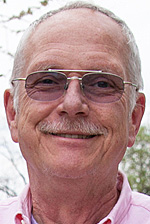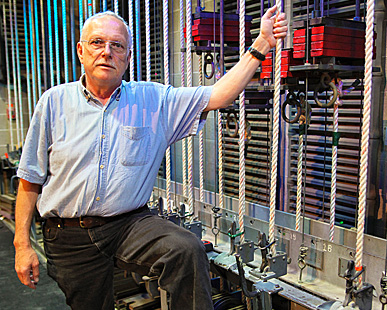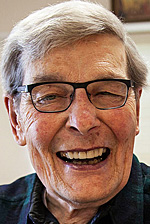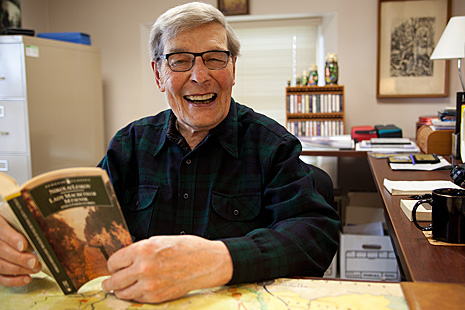The breadth of knowledge and teaching experience immeasurable. The number of classes taught, studio lessons given, recitals and concerts performed virtually incalculable.
Six retiring faculty members — including four from the conservatory — with an incredible 191 years of combined service will be recognized Sunday, June 10 by Lawrence University at its 169th commencement. Each will receive an honorary master of arts degree, ad eundem.
This is the most faculty retirements in one year since 1993, when eight left the academy.
“Retirements are always bittersweet events and that is even more the case this year,” said Catherine Gunther Kodat, provost and dean of the faculty. “These faculty leave sterling legacies in excellent teaching, superior scholarly and artistic accomplishment, and selfless institutional service. It is impossible to imagine Lawrence without their contributions—contributions that will continue to inspire and motivate us for many years to come. They have made Lawrence a better place than it would have been otherwise, and we—their colleagues and students alike—will be eternally grateful.”
Janet Anthony, George and Marjorie Olsen Chandler Professor of Music and cello teacher
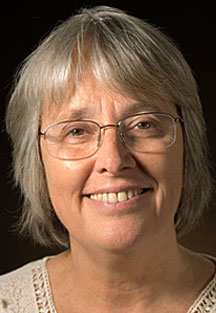
Anthony joined the Lawrence conservatory in 1984 as a 27-year old cellist from Vienna, Austria, via graduate school in New York. During her 34-year career, Anthony has mentored some 300 aspiring cellists, performed on the Lawrence Memorial Chapel stage countless times, played live on Wisconsin Public Radio and entertained audiences in well-known music venues around the world, including throughout Europe, South America as well as in China, Japan, Korea and Vietnam.
“Music is a wonderful way to remove borders and remove blocks,” said Anthony, a native of Tucson, Ariz. “For me, personally, it has mainly been through music that I’ve traveled and gotten to know other cultures and see other things.
“The chance to perform with remarkable colleagues has been one of the greatest gifts of my time at Lawrence,” she added. “Performing with the Lawrence Chamber Players for some 30 years was a rich part of my life.”
When it comes to career highlights her thoughts turn immediately to students.
“It’s really always about the students and the amazing individuals who have come through the studio over the past 34 years,” said Anthony, who earned a bachelor of music degree from the University of Arizona after three years of study at the Hochschule für Musik und Darstellende Kunst in Vienna. She earned a master’s degree in music at the State University of New York at Stony Brook.
“There have been so many people of such varied interests and varied gifts. Keeping in touch with a number of them through the years has been very gratifying and rewarding.”
Much of the last third of Anthony’s career focused on what she calls her “obsession.” The country of Haiti, where she’s compassionately cultivated a variety of youth music programs both before and after the devastating earthquake in 2010, has occupied copious amounts of Anthony’s free time. While on sabbatical this spring, she spent three months there assembling an orchestra for the 2nd Annual Haitian National Orchestra Institute.
“We had members of the Utah Symphony and their music director, a bass player from the Cleveland Orchestra and 100 participants from 23 different music schools in Haiti,” said Anthony. “They played so well.”
Before her involvement, Haiti had one primary music school in the country.
“Since then, there have probably been 20 music programs that have blossomed and are doing very well,” she said while deflecting credit.
“I think the work that I’ve done with a lot of other people has had something to do with it, but really these are organically grown programs. They arrive out of the desire of specific communities to do something in music. We don’t implant things. It all comes from within the community. But there is a burgeoning interest in music there.”
““What I will miss about teaching at Lawrence is the incredible students we have, the camaraderie that develops in the studio, the fun we have and the hard work we do.”
— Janet Anthony
When the subject of legacy comes up, Anthony turns philosophical.
“I hope that it has something to do with striving for beauty, striving to create beauty in the world around us. Bringing that home and further afield, and making what music brings to our lives more accessible to people,” said Anthony, co-recipient of the 2017 Faculty Convocation Award.
She will return to the southwest in retirement — just outside Albuquerque, N.M — and plans to continue teaching locally there and in Haiti, and performing with her piano partner of 36 years.
“What I will miss about teaching at Lawrence is the incredible students we have, the camaraderie that develops in the studio, the fun we have and the hard work we do. Everybody throws themselves wholeheartedly into what happens here. I don’t know if it is that rare, but it’s something that I treasure about Lawrence.”
James DeCorsey, associate professor of music and horn teacher
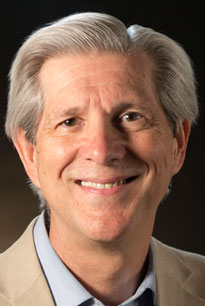
Growing up in Palm Springs, Calif., DeCorsey often crossed paths with celebrity A-listers. As a teen, he delivered flowers and groceries to Frank Sinatra, Bob Hope and Natalie Wood. He frequently sat on the roof of his house to watch the likes of President Eisenhower, John F. Kennedy and Richard Nixon land at the airport a few blocks away. His next-door neighbors included Liberace’s brother and old-time Hollywood director Eddie Sutherland.
After graduating from Stanford University, DeCorsey enjoyed a 15-year career as a professional musician. It was a life that saw him share a stage with Sinatra for a two-week gig, play with the London Philharmonic and the Royal Ballet during a five-year stay in England and perform in the orchestra pit for the Broadway smashes “Cats,” “Evita,” and his personal favorite, “Sugar Babies” with Ann Miller and Mickey Rooney, who handed him a note each night from the stage.
While living in New York City, where he played horn with the American Symphony, Musica Sacra (under the direction of 1954 Lawrence graduate Richard Westenburg) and the Brooklyn Philharmonic, DeCorsey developed an itch…to teach.
“My wife and I had grown up in much smaller places than any of these large metropolitan areas we’d been living in the past 15 years,” said DeCorsey. “The idea occurred that I might like to teach, particularly at the college level.”
A colleague encouraged an audition, which led to DeCorsey’s acceptance as a non-traditional student to Yale University, where he eventually earned two master’s degrees and a doctorate of musical arts degree.
“I hadn’t been in school for over 15 years and certainly wondered how I would do,” he said, “but I found that I instantly felt at home in the academic setting.”
While most students start looking for performing opportunities upon earning their master’s degree, DeCorsey already had a substantial performance resume.
“I made it very clear I wanted to teach,” he recalled. “They said, ‘Great, go find yourself a job.’ There were three openings that year for college teaching jobs for horn specialists. Amazingly I got interviewed for all of them and of the three, Lawrence was obviously the right fit.”
He still considers his undergraduate degree in English — instead of music — something that worked to his advantage when he interviewed here.
“I grasped the concept of Freshman Studies and was lucky enough to teach it a few times over the years until the horn studio grew,” said DeCorsey, whose daughter works at 30 Rockefeller Center and whose son makes violins in northern Wisconsin.
DeCorsey’s time living in London before embarking on his teaching career left an indelible imprint on his life. He called the opportunity to return — twice — to England’s capital via Lawrence’s London Centre “the two undoubted highlights of my time at Lawrence.”
“Living overseas hugely effected my eventual path in life and so I wanted to help create similar life-changing, world-expanding experiences for the Lawrentians I worked with in London,” said DeCorsey, who served as the centre’s director in 2001-02 and co-taught there with Professor of English Tim Spurgin in 2009-10. “One of the things I assuredly will do in retirement is to return to London whenever possible to take advantage of my reader’s card at the British Library, which I should be able to renew in perpetuity due to emeritus faculty status.”
While he may have arrived a bit later to the teaching game than some of his colleagues, the impact of the students he’s worked with is much the same.
“The thing I’ll miss the most is the students. They are wonderful, keen, hard-working,” said DeCorsey, who spent 2015-17 honing his administrative skills as associate dean of the conservatory. “They often come in very bright, very talented, but rather unsophisticated. But to watch them grow over the next four or five years is the most gratifying experience.”
Coming to Lawrence to scratch his teaching itch did not extinguish his desire to still perform and his association with various ensembles remains a bright spot on his 28-year tenure.
“Playing chamber music with my colleagues certainly is one of the highlights for me over the years. I’m surrounded by this terrific faculty and the Lawrence Brass has been a very important part of my time here.”
“The thing I’ll miss the most is the students. They are wonderful, keen, hard-working.”
— James DeCorsey
DeCorsey plans to relocate to Vancouver, Wash., to rejoin his wife, Patricia, who is an international Montessori teacher there.
Nick Keelan, associate professor of music, trombone teacher
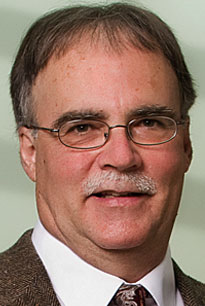
Anyone who has enjoyed the Tuesday night jazz at Frank’s Pizza Palace in downtown Appleton played by the Big Band Reunion, can thank Keelan. It was his idea to start the group, which he co-led for a decade and still performs with occasionally.
His arrival at Lawrence in 1985 came after 10 years of teaching music in high school in Texas and Colorado and with a word-of-mouth assist from Bob Levy, the former long-time director of bands at Lawrence, who was once one of Keelan’s undergraduate professors at Henderson State University.
Keelan’s initial teaching load included trombone, euphonium, tuba and running the instrumental music education program, including formulating a new system of education based on a new state law.
“I got real busy. At one point, I had 29 trombone students and there weren’t enough hours in the day,” said Keelan, who estimates he’s worked with some 500 trombonists in his 33 years at Lawrence.
At various times along the way, Keelan served as conductor of Lawrence’s Symphonic Band, Wind Ensemble, Jazz Ensemble, Jazz Band and Jazz Workshop. He is a founding member of the Lawrence Brass, the faculty brass quintet, and the Faculty Jazz Group.
“The Lawrence Brass has been very active here as a resident performing brass quintet,” said Keelan. “As a group we’ve rehearsed twice a week for the last 25 years or so.”
Speaking of rehearsals, Keelan makes sure to find time to blow his own trombone every day, anywhere from 30 minutes to four hours.
“Some days, when I play with students, it could be an eight-hour day with a horn on the face. That’s just what it takes,” Keenlan said with a hint of a drawl from his time growing up in Arkansas and Texas. He attended and graduated from Little Rock Central High School, 10 years after the group of African-American students known as the “Little Rock Nine” enrolled in the then-all-white school. “I’m a night owl so my practice would often start at 10 at night and often go to two or three o’clock in the morning. Then I’d have to get up and go teach.”
“I’ve enjoyed a lot of cool things — concerts, clinics, performances off campus. It’s that regular schedule of getting together with people you like to work with that I’ll miss a lot.”
— Nick Keelan
When on that rare occasion he’s not in his office, the studio or rehearsal room, Keelan is likely at a clinic, mentoring an aspiring elementary or high school trombonist. Despite his busy schedule, he typically manages to shoehorn in about 25 clinics a year, some in Wisconsin, others out of state.
“I do a lot of clinics at the schools,” said Keelan, who was recognized with Lawrence’s Young Teacher Award in 1988, “But I have to be cautious with how much I leave campus. That’s why Jazz Celebration Weekend is nice. The students come to us.”
Music may be central to Keelan’s life, but he has other interests that provide an adrenaline rush that’s different than a standing ovation. He drives Formula Ford race cars. He flew his own airplanes for a decade, although he’s since given those up for a motorcycle and a dirt bike. He enjoys four-wheeling and remodeling projects.
Retirement will find him in Colorado at a home he’s owned for 16 years “in the boonies up on a cliff” overlooking Twin Lakes. He plans to continue playing and conducting with the local Summit County Band and the Colorado Brass Band.
“I’ve enjoyed a lot of cool things — concerts, clinics, performances off campus,” Keelan said of his three-plus decades at Lawrence. “It’s that regular schedule of getting together with people you like to work with that I’ll miss a lot. And the students, you see their progress, their successes and you stay in touch with them. I’ll miss those interactions I get once they leave. I’ll miss a lot of that stuff.”
Carol Lawton, Ottilia Buerger Professor of Classical Studies and professor of art history
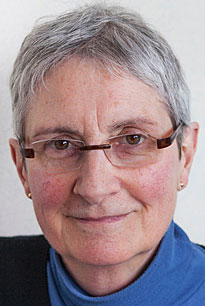
The longest-serving of the six retirees, Lawton has called the Agora —the civic and commercial center of ancient Athens — her home every summer of her 38 years at Lawrence. It’s there she’s conducted much of her life’s work, studying sculpture from the 4th and 5th centuries B.C.
“I specialize not in the big names in Greek art, but in so-called anonymous sculpture, unsigned works like votive reliefs that give us important insight into the concerns of their dedicators,” said Lawton, who grew up in tiny Oakland, Md.
Much of Lawton’s more recent work concerns the sculpture from the excavations begun in 1931 by the American School of Classical Studies, which have uncovered more than 3,500 pieces, only a fraction of which has been published. In her 2006 book “Marbleworkers in the Athenian Agora,” Lawton presented the archaeological evidence for sculptors’ workshops in the area of the Agora.
Her most recent book, 2017’s “Agora XXXVIII: Votive Reliefs,” detail how most of the reliefs weren’t dedicated to Olympian deities but rather to gods and heroes who were closer to the people and who were concerned with the daily aspects of the people’s lives such as healing, fertility and prosperity. Her research has been supported by grants from the National Endowment for the Humanities, the Guggenheim, Kress and Loeb Foundations and the Archaeological Institute of America.
Her interest in art history was cultivated as an undergraduate at Vassar College, where she enrolled with political science major intentions.
“Vassar had a requirement that you had to take two languages – the one you took in high school and another foreign language,” said Lawton. “I thought why not take Greek? Simultaneously, I took the intro to art history course, just as people do. The two kind of went together. So, I became an art history major and classics minor. It all just worked out that way.”
Beyond her yearly field research in Greece, Lawton also has been the caretaker of Lawrence’s stunning collection of ancient Greek and Roman coins, donated by alumna Ottilia Buerger ’38. Over the years Lawton has supervised 25 students who have contributed to the online publication of the coins, which has been viewed by more than four million readers.
“I’m very proud of the work that the students have done for this collection,” said Lawton, who earned a master’s degree in art history at the University of Pittsburgh and an M.F.A. and Ph.D. in art history at Princeton University. “Ottilia was very clear that the collection be used for teaching. This is not easy material to study. Most publications on ancient coins are simply lists with very abbreviated information that nobody could ever read. Our goal is to explain what the images are and who issued them so that an interested high school student who is taking Latin could look up our collection and understand what that coin is all about.
“I’d like to think I did a pretty good job of teaching them how to do research and how to write it up in a way that by publishing the catalog the collection was made accessible to the public,” she added.
“I’m very proud of the work that the students have done for this collection.”
— Carol Lawton on the Ottilia Buerger Collection of Ancient and Byzantine Coins
If recognition is any indication, Lawton did considerably better than “pretty good.” She is one of only four faculty members in the university’s history to receive Lawrence’s Young Teacher Award (1982), the Award for Excellence in Teaching (2004) and the Freshman Studies Teaching Award (1998).
Shortly after commencement, Lawton will leave for a full year in Athens, with her husband Jere Wickens, visiting assistant professor of anthropology, where she hopes to finish two more books about her research that are in progress.
“It’s going to be odd not being in the classroom,” said Lawton, who was the entire art history department when she started in 1980. “I do some teaching in Greece when people come through to see the Agora, but it’s not the same as introducing students who have never seen these things before to something new. I will miss that.”
Howard Niblock, professor of music and oboe teacher
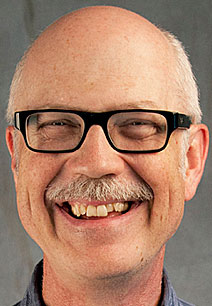
It took eight years of teaching — five at Luther College and three at Ohio University — before Niblock arrived at Lawrence in 1981, a place he described as “perfect.”
“It was a more professionally oriented music program, but it gave me the ability to exercise my interdisciplinary liberal arts roots,” said Niblock, whose undergraduate degree was in English and philosophy, although he did earn a master’s degree in oboe performance at Michigan State University and took additional music classes at the University of Wisconsin-Madison.
In a performance career spanning 50 years, Niblock has served as principal oboe with the Blue Lake Festival Orchestra and Band for 17 years and has played with nearly two dozen symphonies and orchestras, including the Milwaukee Symphony, the Pamiro Opera and the Fox Valley Symphony.
He counts the simple, daily interactions with students among the things that he will miss the most in retirement.
“It’s not just the interaction of teaching them, but all of the other kinds of interactions, too,” said Niblock. “We’re fortunate at Lawrence in that we get a really special brand of young person. I’ve just been lucky enough to get to know so many of them so well.”
Weekend road trips to Björklunden — Lawrence’s northern campus in Door County — with his oboe studio students red-line the needle on Niblock’s memory meter.
“The very first year that the new lodge opened, I took a bunch of woodwind quintets up there,” recalled Niblock, citing guest visits by some of his first oboe students, Katherine Hopkins ’85 and John Perkins ’83 among them, on some of his Björklunden trips as special highlights. “Every time I’ve gone up there, it’s been a wonderful memory.”
An avid Freshman Studies teacher — he’s taught Lawrence’s signature course some 30 times in his 37 years on the faculty and was recognized in 2003 with the university’s Freshman Studies Teaching Award — Niblock established a tradition in the late 1990s, reuniting graduating seniors each spring who were in his Freshman Studies section for group toast in the Viking Room. “That’s always been a blast to do,” he says.
“We’re fortunate at Lawrence in that we get a really special brand of young person. I’ve just been lucky enough to get to know so many of them so well.”
— Howard Niblock
One of the things Niblock is best known for is offering the opening words — usually an appropriate excerpt from a poem — at the start of commencement and the annual matriculation convocation. It came to him in the form of a request from then-President Richard Warch in the early 1990s.
“After I did it the first time, Rik came up to me and said, ‘I want you to do this again.’ And then he asked me every year,” said Niblock, a self-described poetry lover. “When Jill Beck came, she said, ‘We want to keep a number of things the same, have some continuity here. Would you do it?’ And when Mark Burstein came, he kept the same continuity. It’s turned into quite a long time.”
As a fitting ending to his career as a music teacher and “opening words” speaker, Niblock is considering reading a poem written by his son, a poet, at the 2018 commencement.
As he looks back, one thing that generates a proud smile is the fact his incoming successor for next year, Nora Lewis, is a former student of his.
“That really puts a nice glow on the whole thing,” said Niblock, who grew up in East Lansing, Mich. “It kind of closes the loop, but also continues it. It’s hard to top that.”
While he’s played the oboe since the age of 11, his crystal ball hints at more writing — music and otherwise — in his immediate future.
“I’m going to spend some times composing,” said Niblock, who plans to still call Appleton home for the near future. “I have some music in my head that I haven’t had time to write.”
Dirck Vorenkamp, associate professor of religious studies
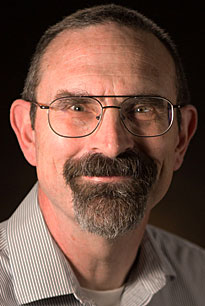
Maybe his imposing stature has something to do with it. A former Tulsa, Okla., police officer, Vorenkamp casts a large shadow. He is known among the student body as being one of the toughest graders on the faculty.
“That’s my reputation,” laughs Vorenkamp at the suggestion. “The truth of the matter is, if you look at the grade distribution, I give pretty much as many As and Bs as my colleagues in the humanities. This ‘tough thing,’ a lot of it just has to do with personality.”
A specialist in East Asian Buddhism, Vorenkamp lived in Taiwan for a year while completing his Ph.D. He spent a combined five years teaching at UW-Madison and UW-Milwaukee before joining the Lawrence faculty in 1997, when he learned quickly he was no longer at a public institution.
“I was teaching the Intro to East Asian Religions course and in the very first week, one of the upperclassmen came up to me and asked ‘Why aren’t we reading original sources in this class?,’” recalled Vorenkamp, who was born in Baton Rouge, La., but grew up in Tulsa. “If somebody had taken my picture right then, I’m pretty sure my jaw would have been on the floor. I taught at UW-Madison and UW-Milwaukee and never had a student ask me something like that. In my first week here, students clued me in about some of the important differences between Lawrence and those schools.”
He credits bright and motivated students for keeping the classroom energized and counts them among the highlights of his Lawrence tenure.
“It’s really a joy to work with students like that, as well as so many colleagues who are doing interesting things in their classes. Just in our everyday interactions, getting to know and work with smart, talented folks, learn about some of the things they’ve succeeded in has been a real pleasure. And the freedom to pursue lines of intellectual inquiry that are personally interesting to me has all helped make this a wonderful way to spend the last 21 years.”
A major grant Lawrence received allowed for numerous trips to East Asia in the early 2000s. Vorenkamp was able to participate in eight of the trips.
“I was a part of the Freeman group that helped put things together and I got to guide a number of those trips,” he said. “That was just an amazing opportunity for all of us.”
“It’s really a joy to work with [bright, motivated] students, as well as so many colleagues who are doing interesting things in their classes.”
— Dirck Vorenkamp
Vorenkamp also guided Lawrence’s signature Freshman Studies program as its director from 2005-07 and was recognized with the university’s “Freshman Studies Teaching Award” for the 1999-2000 academic year.
After earning a bachelor’s degree in education, Vorenkamp spent four years as an officer with the Tulsa Police Department, earning two “Chief’s Commendations” for outstanding performance in the line of duty, before turning his career interests toward higher education. He earned a master’s degree in East Asian languages and cultures at the University of Kansas and completed his doctorate in Buddhist studies at the University of Wisconsin- Madison.
The siren call of two young grandchildren and the chance to be a full-time “Opa” is luring Vorenkamp to suburban Detroit this summer.
“As much as I enjoy working, I’ve never been one of those folks who felt that work was the primary thing in my life,” said Vorenkamp, who’s looking forward to more time for riding his motorcycle. “My wife and I are ready to move on to the next chapter of our lives, as much as we’ve enjoyed the years thus far.”
About Lawrence University
Founded in 1847, Lawrence University uniquely integrates a college of liberal arts and sciences with a nationally recognized conservatory of music, both devoted exclusively to undergraduate education. It was selected for inclusion in the book “Colleges That Change Lives: 40 Schools That Will Change the Way You Think About College.” Engaged learning, the development of multiple interests and community outreach are central to the Lawrence experience. Lawrence draws its 1,500 students from nearly every state and more than 50 countries.
